26th Sunday in Ordinary Time Year C
Sunday September 28, 2025
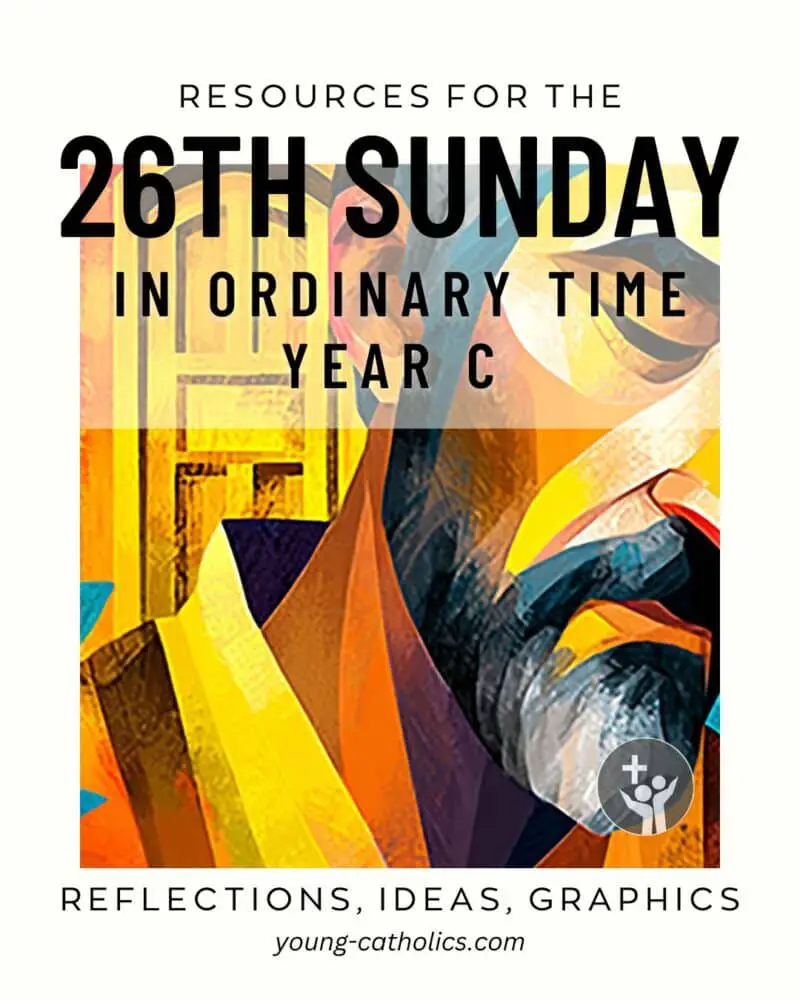
Lessons on Justice and Mercy
The 26th Sunday in Ordinary Time Year C calls us to look at how we treat others. The readings warn against selfishness and ignoring those in need. God asks us to live with kindness and care, not to turn away from the poor or weak. This Sunday reminds us that faith is shown in how we act.
Amos speaks strongly against those who live in comfort while others suffer. His words show that God wants justice for all people. Psalm 146 tells us that God lifts up the lowly and cares for the hungry, the sick, and the forgotten. These passages help us see that following God means helping others, not just caring for ourselves.
The Gospel of Luke gives us the story of the rich man and Lazarus. It shows what happens when we close our hearts to others. The 26th Sunday in Ordinary Time Year C invites us to listen to God’s word and live it every day. It is a call to love, mercy, and hope for all.
Mass Readings for the 26th Sunday in Ordinary Time Year C
- First Reading – Amos 6:1A, 4-7: God condemns those living in luxury and indifference in Zion, foretelling their exile and the end of their extravagant celebrations.
- Responsorial Psalm – Psalm 146: God brings justice, feeds the hungry, frees prisoners, heals the blind, and supports the downtrodden, orphan, and widow, reigning eternally over all generations.
- Second Reading – 1 Timothy 6:11-16: A man of God is urged to pursue virtues and hold onto eternal life, keeping commandments until Christ’s return, honoring the immortal, unseen Sovereign.
- Gospel – Luke 16:19-31: Jesus narrated a parable contrasting a rich man’s luxurious life with Lazarus, a destitute man. After death, Lazarus found comfort with Abraham, while the rich man suffered. The rich man’s plea for relief and a warning for his brothers was denied, emphasizing the sufficiency of Moses and the prophets’ teachings.
The readings above are for lectionary cycle C. For other years see the links below:
26th Sunday in Ordinary Time Year A
26th Sunday in Ordinary Time Year B
If they will not listen to Moses and the prophets, neither will they be persuaded if someone should rise from the dead.
Luke 16:31
Themes for the 26th Sunday in Ordinary Time Year C
The readings for the 26th Sunday in Ordinary Time Year C call us to care about others. In the first reading we are warned against being complacent while others suffer. The psalm praises the justice of God. In the second reading Paul reminds us to pursue virtues. In the gospel Jesus tells the parable of the Rich Man and Lazarus, where a wealthy man ignored the needs of a poor man every day.
The readings for the 26th Sunday in Ordinary Time Year C focus on themes of wealth, responsibility, and the afterlife. They challenge us to reflect on our own lives in light of eternal values.
- Wealth and Complacency: The reading from Amos criticizes those who are comfortable and indifferent to the suffering around them. It shows that God sees and judges our indifference, especially when we ignore others’ needs while living in luxury.
- Moral Integrity: Paul urges Timothy to pursue righteousness, godliness, faith, love, steadfastness, and gentleness. This theme tells us that living a good life involves more than avoiding bad actions; it also requires actively cultivating virtues.
- Eternal Consequences: The Gospel parable about Lazarus and the rich man illustrates that our actions have consequences beyond this life. It teaches us that how we treat others, especially those in need, influences our eternal destiny.
- The Role of Scripture: The rich man learns that Moses and the prophets’ teachings are enough to guide us to live rightly. This emphasizes the importance of paying attention to Scripture as a guide for our lives.
- Justice for the Poor: Both Amos and the Gospel highlight God’s concern for the poor and suffering. It reminds us that our faith calls us to help those who are less fortunate.
- Ultimate Authority of God: Paul describes God as the only Sovereign, the King of kings and Lord of lords. This reaffirms that all power and authority ultimately belong to God, and we are to live in a way that honors Him.
These themes from the readings of the 26th Sunday in Ordinary Time Year C invite us to examine our lives and align our actions with God’s expectations. They call us to live not just for today, but with an eye toward eternity.
Resources for the 26th Sunday in Ordinary Time Year C
- Invisible – A Lesson Plan on Seeing Others
- Make Blessing Bags for the Homeless
- Do One of the Corporal Works of Mercy
- The Book of Amos: Warning Against Complacency
- Psalm 146: God Who Lifts the Lowly
- First Letter to Timothy: Living as a True Servant of God
- The Gospel of Luke: The Call to Listen and Act

Invisible – A Lesson Plan on Seeing Others
The lesson plan “Invisible” on Young Catholics fits well with the themes of the 26th Sunday in Ordinary Time Year C, especially the Gospel reading from Luke 16:19-31. The rich man ignored Lazarus, who suffered right outside his door. In the same way, many people today feel unseen or ignored.
This lesson encourages people to notice and care for others, just as God calls us to do. It reminds us that wealth and comfort can make people blind to the needs of others, just like the rich man in the parable.
This also connects to Amos 6:1A, 4-7, where God warns those who live in luxury without concern for others. The people in Amos’ time, like the rich man in the Gospel, focused on their own pleasure while ignoring suffering around them.
The lesson plan challenges people to open their eyes and take action. It encourages young Catholics to see and help those who are often overlooked. This ties into Psalm 146, which praises God for caring for the poor, hungry, and oppressed. Christians are called to do the same.
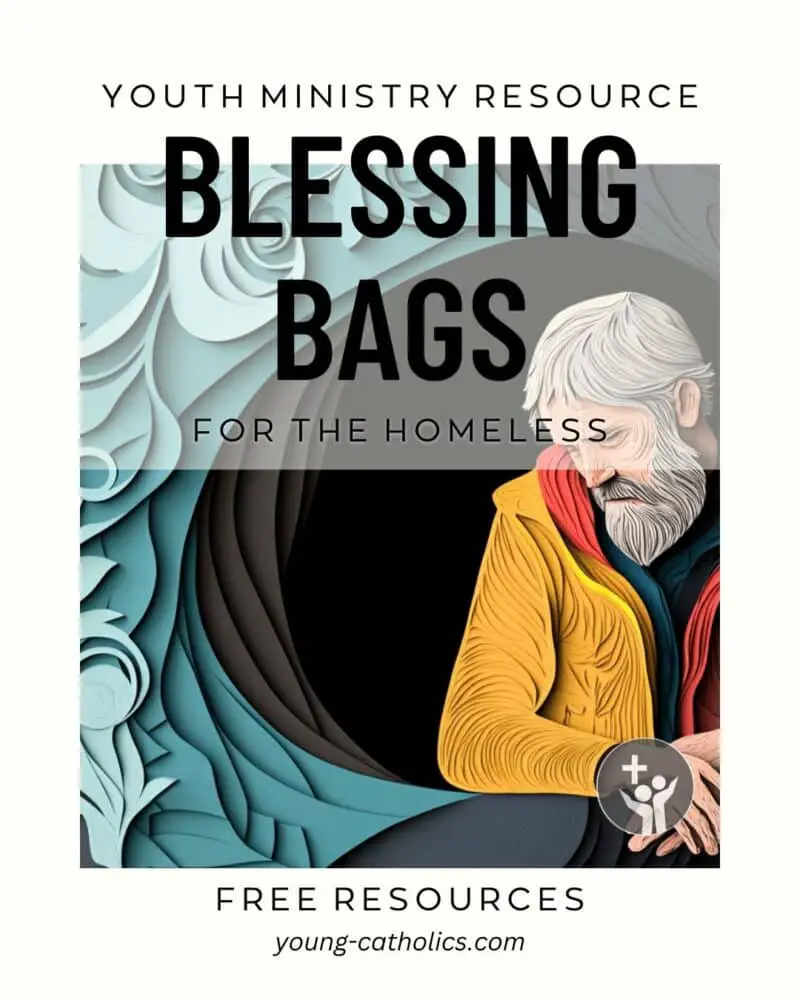
Make Blessing Bags for the Homeless
This activity connects well with the Gospel for the 26th Sunday in Ordinary Time Year C (Luke 16:19-31). In the parable, the rich man ignored Lazarus, who was suffering right outside his door. He had the resources to help but chose not to. This activity encourages people to do the opposite—to see those in need and take action. Making blessing bags is a simple way to help those who are often ignored, showing them kindness and care.
This project also teaches a lesson about generosity and responsibility. The rich man’s mistake was not his wealth but his failure to use it to help others. Jesus calls His followers to see and serve those in need. Making blessing bags is one small way to live out this message. It reminds us that every person deserves dignity and care, just as Lazarus did.

Do One of the Corporal Works of Mercy
The Corporal Works of Mercy relate well with the Gospel for the 26th Sunday in Ordinary Time Year C (Luke 16:19-31). In the parable, the rich man ignored Lazarus, who was suffering at his gate. He had the ability to help but chose comfort over compassion.
Jesus teaches that we must not make the same mistake. The Corporal Works of Mercy—such as feeding the hungry, clothing the naked, and visiting the sick—are ways to care for those in need, just as Lazarus needed care.
This activity encourages people to take action. The rich man’s failure was not just his wealth but his lack of mercy. Jesus calls His followers to serve others, especially the poor and suffering.
Practicing the Corporal Works of Mercy helps people live out this call. It is a way to notice those in need and respond with love. This is what the rich man failed to do, and what Jesus asks His followers to do instead.
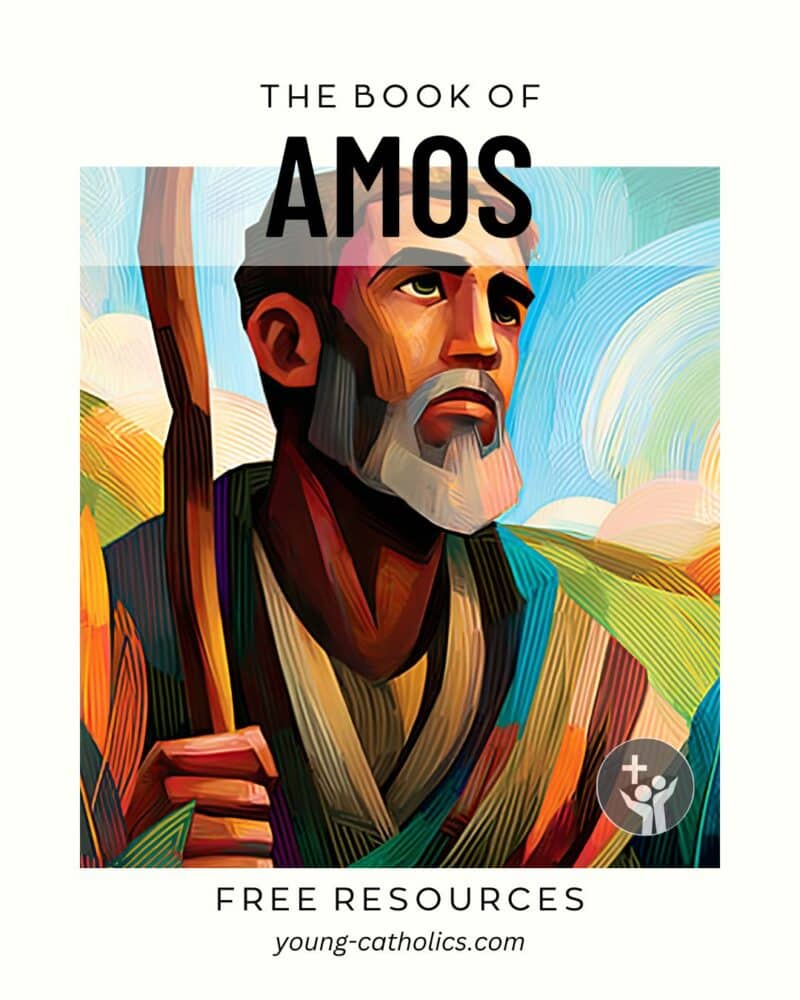
The Book of Amos: Warning Against Complacency
The first reading for the 26th Sunday in Ordinary Time Year C comes from Amos, a prophet who spoke against injustice in Israel. Amos 6:1a, 4-7 condemns those living in comfort while ignoring the suffering of others. This fits the book’s strong theme of social justice, where God demands care for the poor and rejects empty worship from those who oppress others.
The prophecy of exile in this passage also reflects Amos’ larger message that God’s covenant includes responsibility. Israel’s failure to live righteously will lead to judgment. Amos consistently reminds the people that God’s justice will not overlook selfishness and neglect of the needy.
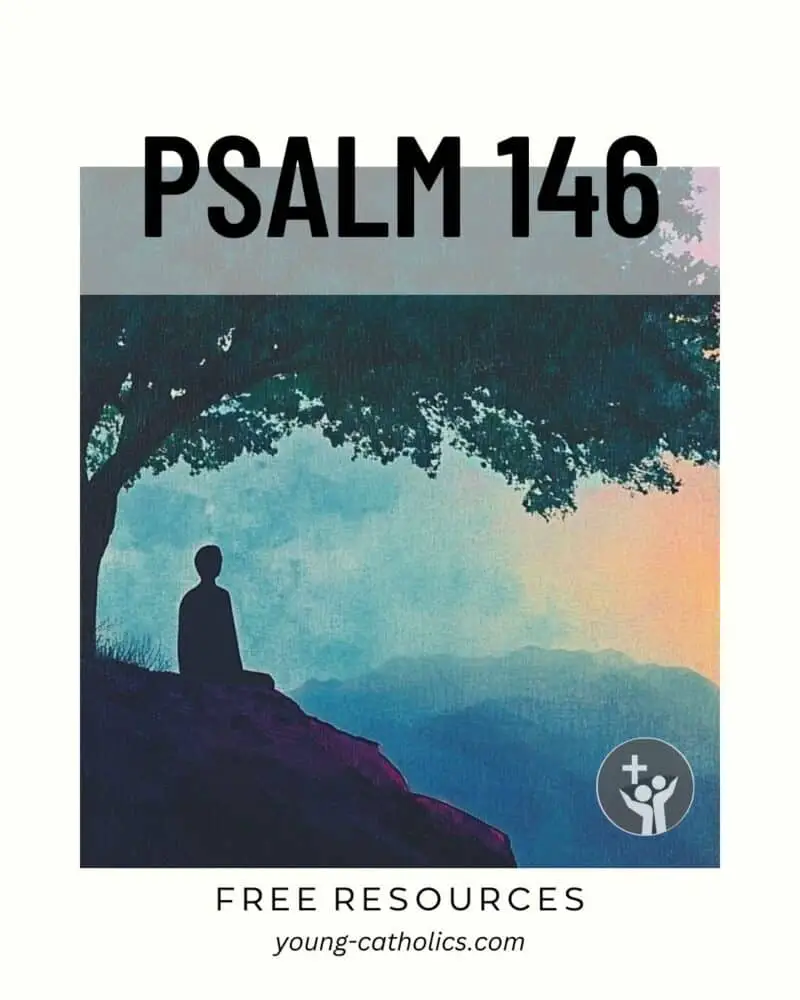
Psalm 146: God Who Lifts the Lowly
Psalm 146, proclaimed on the 26th Sunday in Ordinary Time Year C, praises God as the defender of the oppressed. This psalm highlights God’s care for the weak, the hungry, and the outcast. It fits with the psalm’s theme of trusting in God alone, not in human rulers, because only God reigns with justice that lasts forever.
The psalm’s focus on lifting the lowly connects to its wider message of hope for those who suffer. It reminds the faithful that God’s kingdom works differently than human power, honoring the poor and giving life to the forgotten. This trust is central to many psalms of praise and thanksgiving.

First Letter to Timothy: Living as a True Servant of God
In the second reading for the 26th Sunday in Ordinary Time Year C, Paul urges Timothy to live faithfully as a servant of God. The message in 1 Timothy 6:11-16 fits the book’s overall theme of guiding church leaders to live holy lives. Paul stresses virtues like faith, patience, and love, which are essential for a community built on Christ.
The reminder of Christ’s return and God’s eternal kingship connects with 1 Timothy’s larger focus on keeping the faith amid trials. Leaders must not be distracted by wealth or pride but must honor God’s sovereignty in all things. This reading encourages perseverance and holiness for those entrusted with teaching others.
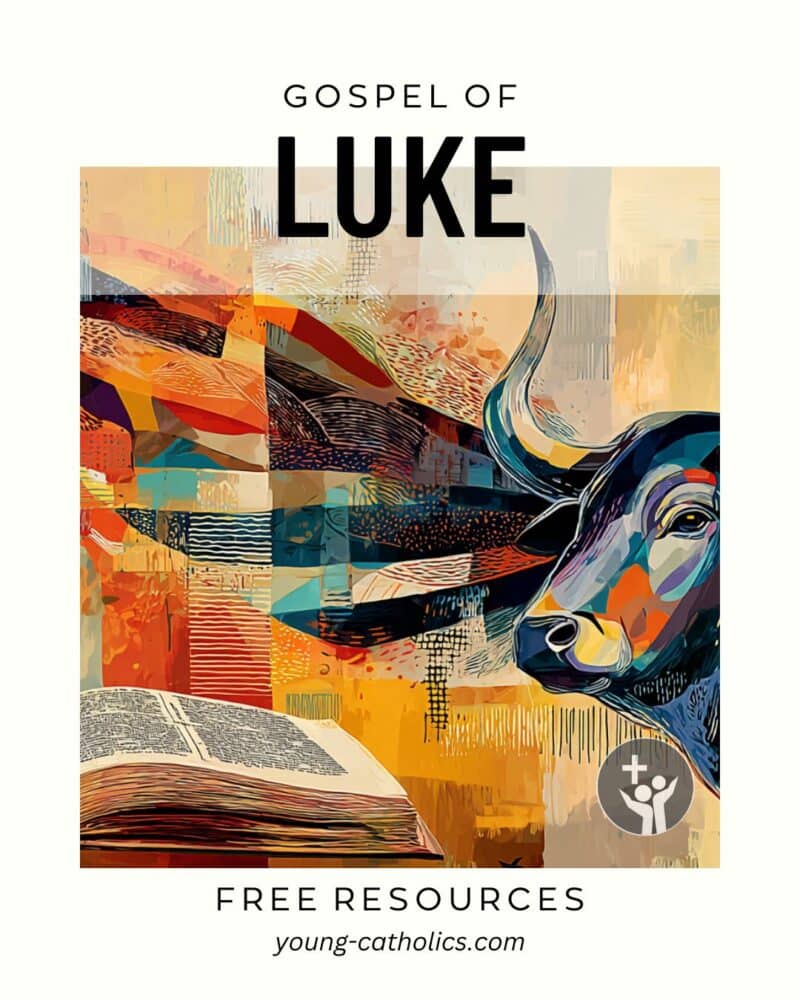
The Gospel of Luke: The Call to Listen and Act
The gospel for the 26th Sunday in Ordinary Time Year C tells the parable of the rich man and Lazarus. In Luke 16:19-31, Jesus warns against ignoring the poor, a theme that runs throughout Luke’s Gospel. Luke often highlights God’s concern for the marginalized and challenges followers to live generously and humbly.
This story also reflects Luke’s theme of responding to God’s word with action. The rich man’s brothers have Moses and the prophets, just as we have Scripture today. Salvation comes not from seeking signs but from listening to God’s message and living it out in love for others.
Read more about these themes in this introduction to the Gospel of Luke.
Homilies and Commentaries for the 26th Sunday in Ordinary Time Year C
Both: Praying and Doing
Father Richard Rohr discusses the Gospel for the 26th Sunday in Ordinary Time Year C, highlighting the parable of Lazarus and the rich man. He critiques the modern cynical view that diminishes hope and purpose, contrasting it with Shane Claiborne’s approach, which combines action and contemplation. Claiborne’s work with The Simple Way and new monastic communities shows that living out the Gospel creates real community and change.
Fr. Rohr emphasizes that, unlike the isolated rich man, engaging with the suffering transforms us, advocating for breaking down barriers to connect with those in need.
A Great Chasm
Scott Hahn reflects on the readings for the 26th Sunday in Ordinary Time Year C, emphasizing the themes of wealth, responsibility, and eternal consequences. He discusses the failures of the rich and powerful, not for their wealth itself, but for their indifference and refusal to share with those in need.
Hahn connects the rich man’s neglect to Israel’s failure to keep the Old Covenant and heed the prophets. The reflection warns of the spiritual exile that awaits those who ignore God’s commandment of love. Hahn calls for repentance and a commitment to righteousness, highlighting the promise of eternal life and divine justice celebrated in the Eucharist.
Rich Man, Poor Man
In his homily for the 26th Sunday in Ordinary Time Year C, Bishop Robert Barron shares a personal encounter with a homeless man in Chicago, which he connects to the parable of Lazarus and the rich man. He reflects on the discomfort this man causes him, similar to the discomfort intended by Jesus’s parable.
Bishop Barron explains that wealth can isolate us and lead to a lack of compassion, a theme both present in the Gospel and his personal experience. He emphasizes that true wealth should serve God’s purpose, highlighting the Catholic teaching that we are stewards of God’s creation, not its owners.
The homily challenges listeners to use their wealth for the common good and to see encounters with the needy as opportunities to serve and connect with God.
Reflection for the 26th Sunday in Ordinary Time Year C
The readings for the 26th Sunday in Ordinary Time Year C present a striking message about the reversal of fortunes. This theme underscores a core teaching of the Bible: our current status, whether of wealth or poverty, is not permanent and can change dramatically. The prophet Amos and Jesus, through his parable, remind us that earthly riches and comfort should never blind us to the needs of others. Those who have much are warned of the dangers of ignoring those who have little.
Amos Challenges Us to Look Beyond Comfort
The reading from Amos in the 26th Sunday in Ordinary Time Year C delivers a strong warning. It speaks to those who live in comfort and ignore the suffering of others. Amos criticizes those who indulge in luxury while remaining blind to the needs of the poor. This message is not just for the people of his time but for us as well.
We often find ourselves comfortable in our routines and possessions. It’s easy to focus on what we have and forget about those who are struggling. Amos reminds us that this kind of complacency can lead us away from God’s path. Our blessings should never make us blind to the needs around us.
Amos calls us to reflect on how we live. Are we sharing what we have with others? Are we helping those who are suffering? The 26th Sunday in Ordinary Time Year C invites us to ask these questions and make changes in how we serve God and others.
Jesus Shows the Danger of Ignoring Others
In the Gospel for the 26th Sunday in Ordinary Time Year C, Jesus tells the parable of Lazarus and the rich man. This story is a clear reminder of what can happen when we focus only on ourselves. The rich man enjoyed his wealth while ignoring the suffering of Lazarus, who was right outside his door. After death, the rich man faced judgment, and Lazarus found peace.
Jesus’s message is clear: wealth and comfort are not the problem, but selfishness is. When we fail to see the suffering of others, we turn away from God’s call. The rich man’s downfall wasn’t his wealth but his choice to do nothing for Lazarus.
This parable invites us to reflect on our own choices. Are we aware of the needs around us? Do we use what we have to help others? The 26th Sunday in Ordinary Time Year C reminds us to see those in need and to act with love and compassion.
Paul Encourages Us to Live with Virtue
In the second reading for the 26th Sunday in Ordinary Time Year C, Paul gives Timothy practical advice. He urges him to seek virtues like faith, love, and gentleness. These virtues help us live a life focused on God and others, rather than ourselves. Paul’s words contrast with the selfishness shown by the rich man in the Gospel.
Living a virtuous life means putting God first and serving others. It means being patient, kind, and steadfast even when life is hard. These qualities help us stay close to God and prepare for what is to come. They also remind us that true wealth is found in our relationship with God and our care for others.
Paul’s advice challenges us to grow in our faith. The 26th Sunday in Ordinary Time Year C is a chance to reflect on how we can pursue these virtues. By doing so, we align our lives with God’s will and help bring his love to the world.
The readings for the 26th Sunday in Ordinary Time Year C challenge us to examine our lives and ask whether we are like the rich man, insulated from the needs of others by our own comfort. They invite us to consider a life where our greatest joy comes not from what we have, but from what we give. This transformation is what God seeks for us, a life where we are truly rich in mercy and compassion.
Prayer
Lord, help us to see beyond our comforts and to respond to those in need with a generous heart. Teach us to treasure mercy and compassion over wealth, so that we may truly participate in Your work and know the joy of Your Kingdom.
Reflection Questions for the 26th Sunday in Ordinary Time Year C
- How does the story of Lazarus and the rich man challenge my view of wealth and comfort?
- In what ways can I become more detached from my possessions in order to better serve those around me?
- How can I incorporate acts of mercy and compassion into my daily life to live out the call of Jesus?
- What specific actions can I take to ensure I am not ignoring those who are less fortunate around me?
- How do Amos’s warnings about luxury and complacency apply to my own life and community today?
- Reflecting on Paul’s advice to Timothy, which virtues do I find most challenging to embody, and why?
- How can reflecting on the eternal consequences depicted in the Gospel influence my daily decisions and interactions with others?
- In what ways can I use my resources to benefit others rather than just enhancing my own comfort?
- What steps can I take this week to better listen to and act upon the teachings of Moses and the prophets, as mentioned in the Gospel?
Quotes and Social Media Graphics for the 26th Sunday in Ordinary Time Year C
At the Gate of Mercy

Share the message of mercy and compassion with this striking image of Lazarus outside the rich man’s door. Perfect for bulletins, newsletters, or catechetical materials, it invites reflection on caring for those in need.
Download it to inspire hearts and encourage deeper trust in God’s justice and love.
Paid subscribers may download a large copy this digital artwork without watermarks, suitable for use in bulletins, social media, newsletters, etc., free of charge by clicking here. You must be logged in as a paid subscriber to access the file.
Only current paid subscribers have the rights to use the artwork.
Music Suggestions for the 26th Sunday in Ordinary Time Year C
rooted in the readings of the day, emphasizing service, mercy, and divine calling. These songs reflect on God’s care for the poor, our duty to serve and include everyone, and the transformative power of God’s grace and mercy. The tunes range from reflective hymns that call us to service, to joyful praises that celebrate the inclusiveness and love of God. They encourage congregations to reflect on their responsibilities towards others, especially the less fortunate, and the assurance of God’s immense grace and mercy in their lives.
- Anthem by Tom Conry
- Bread for the World by Bernadette Farrell
- City of God by John Michael Talbot
- Gift of Finest Wheat by The Cathedral Singers
- God Has Chosen Me by Bernadette Farrell
- Here I Am Lord by Dan Schutte
- Hosanna, Praise Is Rising by The Worship Initiative & Shane & Shane
- I Will Exalt You by Brooke Ligertwood
- In Christ There Is No East or West by William A. Dunkerley
- Jesus, Messiah by Chris Tomlin
- Just Like You by Matt Maher
- Praise the Lord, My Soul by Craig Colson & Kristen Colson
- Put on Christ by Bob Hurd
- Table of Plenty by John Michael Talbot
- The Cry of the Poor by John Foley
- The Summons by John L. Bell
- There’s a Wideness In God’s Mercy by Fredrick William Faber
- This Is Amazing Grace by Phil Wickham
- Whatsoever You Do by Willard F. Jabusch, Robert J. Batastini & Owen Alstott
- You Are the Light by Josh Blakesley
Music directors and musicians are encouraged to explore these selections and see how they complement the themes of the readings. Try incorporating these songs into your services and feel free to share your experiences or suggest other music in the comments. Your insights can help enrich the worship experience and deepen the connection between scripture and song in our communities.
Questions and Answers for the 26th Sunday in Ordinary Time Year C
What is the main message of Amos 6:1A, 4-7?
Amos warns the people who live in luxury and ignore the needy. God is not pleased with this and promises consequences.
How can we apply the message of Amos to our lives today?
We can look around to see if there are people in need and find ways to help them. It’s important not to be indifferent.
Why does Paul tell Timothy to pursue virtues in 1 Timothy 6:11-16?
Living a virtuous life helps us stay true to God’s ways. It prepares us for eternal life with God.
How can I pursue the virtues mentioned in the second reading from the 26th Sunday in Ordinary Time Year C?
Start by practicing small acts of kindness, honesty, and faith every day. Praying and reading the Bible can also help us grow in these virtues.
What is the lesson of the parable of Lazarus and the rich man?
The story teaches us that ignoring the poor and suffering can lead to suffering after death. It shows the importance of caring for others.
How does the Gospel of Luke relate to the other readings on the 26th Sunday in Ordinary Time Year C?
Like Amos, the Gospel warns against ignoring the poor. Both readings stress that our actions toward others matter to God.
What does it mean that Moses and the prophets are enough for guidance, as stated in the Gospel for 26th Sunday in Ordinary Time Year C?
Jesus explains that the teachings from the Old Testament are sufficient to guide us to live righteously. We should study and follow them.
Caring for Others Changes Everything
The 26th Sunday in Ordinary Time Year C reminds us about the dangers of focusing only on wealth and comfort. The Gospel tells the story of the rich man and Lazarus. The rich man ignored Lazarus, who was suffering right at his door. After they died, their roles were reversed. The rich man faced torment, while Lazarus found peace with God. This shows us that how we live now affects our eternity.
The first reading from Amos warns against living in luxury without caring about others. Amos calls out people who enjoy comfort but fail to notice the suffering around them. Paul’s letter to Timothy offers a solution. He encourages us to seek righteousness, faith, and love. These virtues guide us toward a life that pleases God and helps others.
The 26th Sunday in Ordinary Time Year C asks us to reflect on our choices. Are we using our blessings to help others? Jesus calls us to live with compassion and generosity. By doing this, we draw closer to God and find true joy.
Your Turn
The 26th Sunday in Ordinary Time Year C challenges us to think about how we treat others. Are we generous, or are we too focused on our own comfort? Take time to reflect on how the readings speak to your life.
Share your thoughts in the comments. How do these readings connect with your experiences? What actions can you take to care for others? Let’s encourage one another to live out the Gospel message.


Leave a Reply